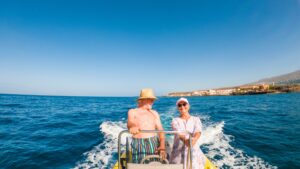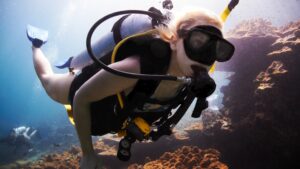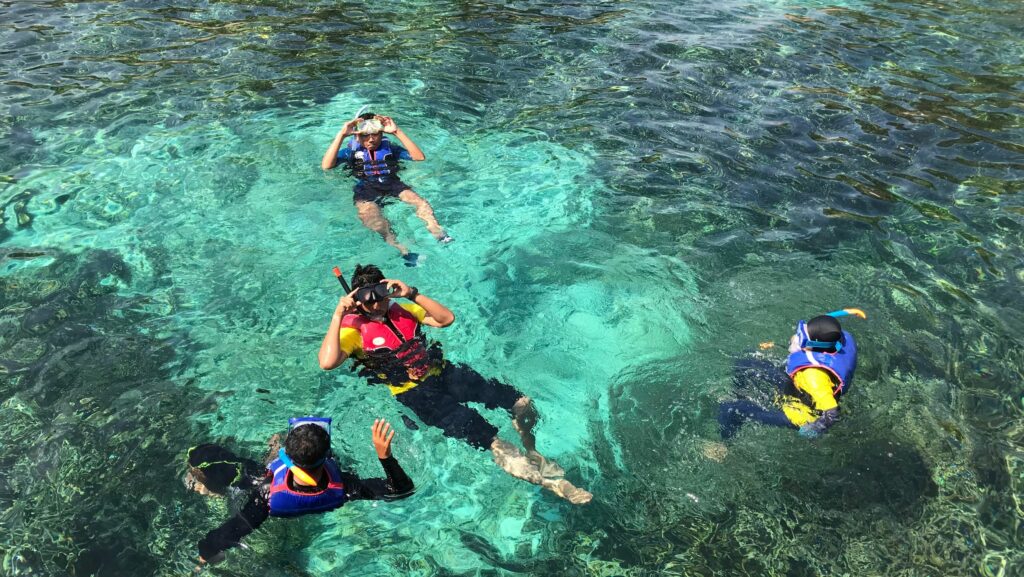There’s a whole new world beneath the ocean’s surface, teeming with life and ripe for exploration. It’s a realm that promises adventure, mystery, and an unparalleled connection with nature. Whether you’re a seasoned diver or a novice looking to dip your toes in, ocean adventures offer a thrilling escape from the everyday.
From the vibrant coral reefs of the Caribbean to the haunting shipwrecks of the Atlantic, the ocean’s depths hold countless stories waiting to be discovered. So, strap on your snorkeling gear or board that sailboat, because we’re about to embark on an exciting journey into the heart of the world’s most magnificent waters.
Ocean Adventures
 Embracing the allure of ocean adventures stirs a sense of curiosity, freedom, and exploration. Gravitating towards these expeditions, many find their fascination ingrained in the limitless beauty and vastness of the open sea. Underneath the mirror-like surface of waters lies a world teeming with vibrant colors, exotic creatures, and unique coastal landscapes. For instance, there’s the luminescent spectrum of underwater marine life and kaleidoscopic coral reefs illuminated by the sun’s rays that penetrate the water.
Embracing the allure of ocean adventures stirs a sense of curiosity, freedom, and exploration. Gravitating towards these expeditions, many find their fascination ingrained in the limitless beauty and vastness of the open sea. Underneath the mirror-like surface of waters lies a world teeming with vibrant colors, exotic creatures, and unique coastal landscapes. For instance, there’s the luminescent spectrum of underwater marine life and kaleidoscopic coral reefs illuminated by the sun’s rays that penetrate the water.
Besides this, the thrill of discovering submerged remnants of human history and mysteries submerged under the ocean’s surface contributes to the appeal. Ancient shipwrecks, damaged war planes, and lost cities provide glimpses into bygone eras and untold stories waiting to be unraveled.
The Rise in Popularity of Water-Based Expeditions
Ocean adventures have experienced a surge in popularity in recent years. According to The Adventure Travel Trade Association (ATTA), there’s a year-on-year increase of around 20% in the number of ocean adventurers enthralled by the enigmatic marine world. They’re not just limited to conventional diving practices anymore.
A whole new generation of explorers is adopting innovative water-based sports and activities. For instance, stand-up paddleboarding, kitesurfing, and ocean kayaking have seen a rise in practice. Moreover, advances in technology and safety measures have also contributed to increased participation. The production of specialized equipments like underwater drones, high-resolution 3D mapping, and sonar-based searching devices has made it easier for adventurers to explore and navigate.
Key Types of Ocean Adventures
 Exploring the myriad of ways to engage with the ocean opens up a world of excitement and adventure. From the depths of undersea exploration to the thrill of wind-filled sails or the challenge of catching elusive marine game, the options are varied and engrossing. Here, three main categories of ocean escapades are delved into.
Exploring the myriad of ways to engage with the ocean opens up a world of excitement and adventure. From the depths of undersea exploration to the thrill of wind-filled sails or the challenge of catching elusive marine game, the options are varied and engrossing. Here, three main categories of ocean escapades are delved into.
Scuba diving and snorkeling offer firsthand encounters with vibrant marine life. Stepping into these pursuits, divers plunge into an underwater panorama, often filled with brilliantly hued coral reefs. While scuba diving demands knowledge of complex equipment and breathing techniques, snorkeling serves as an easy gateway to underwater exploration. Both provide profound experiences with the ocean’s abundant life forms, ranging from playful dolphins to graceful sea turtles. For example, The Great Barrier Reef in Australia offers unique diving and snorkeling locales, home to thousands of species of exotic sea creatures.
Deep-Sea Fishing
Deep-sea fishing combines patience, skill, and a dash of luck for a thrilling match with nature’s most elusive creatures. It angler’s venture into the deeper, less explored waters, often miles from the shore, to challenge marine game that one wouldn’t encounter in shallow waters.
Essential Gear for Ocean Expeditions
 Embracing the joys of ocean adventures requires a special mix of spirit, skill, and, importantly, safe gear. The right equipment forms a crucial part of maritime security, helping to turn a precarious expedition into a successful adventure. From ensuring personal safety to effective navigation, different types of gear play a significant role in any ocean expedition.
Embracing the joys of ocean adventures requires a special mix of spirit, skill, and, importantly, safe gear. The right equipment forms a crucial part of maritime security, helping to turn a precarious expedition into a successful adventure. From ensuring personal safety to effective navigation, different types of gear play a significant role in any ocean expedition.
Safety underpins every successful ocean adventure, and the right equipment is critical. A functional personal flotation device (PFD), such as a life jacket or buoyancy aid, tops the list when considering safety gear. Preferably, these devices must comply with U.S. Coast Guard regulations for water safety.
For those eyeing underwater adventures like scuba diving or snorkeling, dive tables and computers become equally essential. These help to calculate appropriate dive times and manage decompression stops, preventing unpleasant surprises such as decompression sickness..

